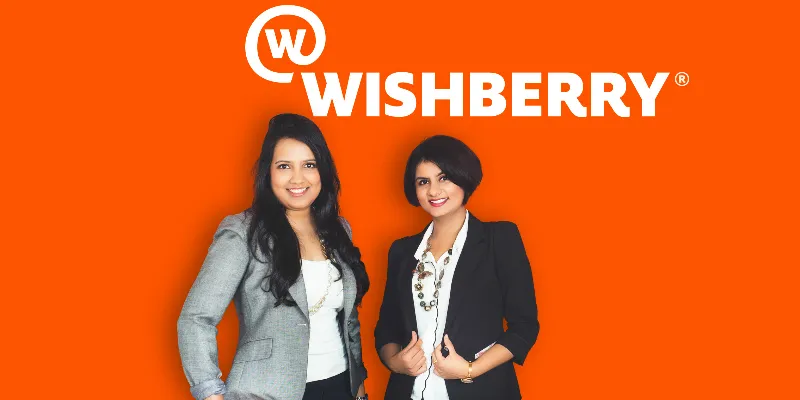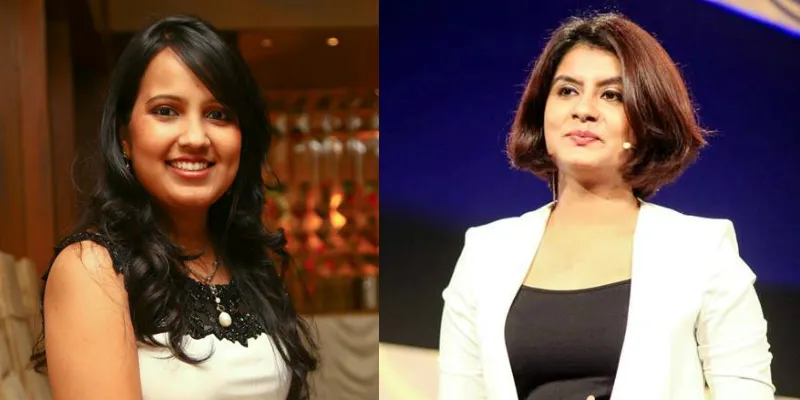“We were asked to quote a discounted valuation because we were women” - How Wishberry conquered sceptics to raise Rs 5cr in creative crowdfunding
The concept of crowdfunding is barely a decade-old globally, and the Indian crowdfunding story – even more nascent – still encounters a range of reactions from ignorance, to scepticism to misconceptions and instant write-offs as scams. Wishberry, the rewards-based crowdfunding platform, is the only one in India that caters strictly to creative projects- think film, music, theatre, design etc.
As the pioneers were tasked with the challenge of introducing a new variant within an already lesser known industry, the hitches in their growth story were twofold. And although the two entered the field with exhaustive knowledge and experience of the space, their gender often posed a threat to their success.

New beginnings
Wishberry was co-founded by McKinsey alums Priyanka Agarwal and Anshulika Dubey in 2012. Priyanka went to UPenn – Wharton/Penn Engineering where she, with three other engineering undergrads, won grant money in a B-plan competition and started their first company, Innova Materials. However, since the US government didn’t offer visas to non-residents to start their own companies in the US, she had no choice but to take up a job. This is when she joined McKinsey in New York for a two-year analyst programme, where Priyanka briefly interacted with Anshulika, who was then working at McKinsey Delhi, on a technology and telecom study.
In 2010, Innova Materials raised $5.5 Million in its Series A. This reignited Priyanka’s enthusiasm for entrepreneurship, and, as a result, she quit McKinsey to chase what is now the Great Indian Startup Dream. She started thinking about gift registries when her sister had gotten married..
Finally, in 2011, she launched Wishberry as a charity fundraising platform revolving around personal events such as marathons, fundraisers and even weddings.
It was around this same time that Anshulika was working on a report on crowdfunding in the social sector in the US, when she came across and studied top crowdfunding platforms in the US like Kickstarter, Indiegogo and GoFundMe. Towards the end of 2011, Anshulika saw one of Wishberry’s campaigns. Surprised to find that someone in India was pursuing this concept, she reached out to Priyanka to discuss the potential of crowdfunding across various sectors:not just charitable and social ventures, but for the creative sector, especially in India. Taken in by this, Priyanka invited Anshulika to join Wishberry.
Blazing new trails
Throughout 2012, Wishberry dabbled in two different crowdfunding models: charity-based and rewards-based crowdfunding,wherein a creator gives out exclusive rewards related to his/her project (for example, premier tickets to a film, autographed merchandise etc.), in exchange for the backer’s funding . Priyanka led the former, whereas Anshulika led the latter, but by the end of 2012, they realised that they just couldn’t be a jack of all trades by dipping their fingers in all kinds of crowdfunding. “When you compare the growth story of Kickstarter (creative only), GoFundMe (charity only) and Indiegogo (creative as well as charity), the latter has mobilised less than half the amount of funds than its competition,” Priyanka explains.
So, in 2013, the duo decided to focus on being a rewards-only crowdfunding platform, but focussing on all sectors, including film, music, theatre, technology and social entrepreneurship. At this time, they also catered to all funding models, namelyFlexible Funding (where campaigners kept whatever they raised) and All or Nothing (where campaigners had to raise their full target amount or else the moneys would be refunded).
The result? Wishberry mobilized Rs 50 lakh in 2013, with an average project raising Rs one lakh, and a 20-percent funding success rate.
Innovation through improvisation
In 2014, Wishberry realised that a 20-percent funding success rate was too risky for an Indian creator to give up their job security and pursue their creative ambitions. So, it narrowed down its focus to the creative sector only. “At the same time, we also shifted our funding model entirely to All or Nothing, so that a creator could quit his/her job and take the plunge, only if they were sure they would meet their target and deliver a high-quality project.”
With this alteration, Wishberry mobilised Rs 110 lakh in 2014 -which was 2x growth from the previous year, with an average project raising Rs 3 lakh, and a whopping 70-percent funding success rate.

The ugly truths of fundraising
Wishberry raised a seed round of funding of Rs 4 crore in 2015. “Staying true to the spirit of crowdfunding, we raised the money from 44 investors, led by Sharad Sharma, Rajan Anandan, Deep Kalra, Amit Ranjan, Shankar Mahadevan and Vikramaditya Motwane among others,” Priyanka says.One of the main challenges was trying to sell the idea to investors, since crowdfunding was a fairly new industry. However, the bigger issue was facing the bias against female entrepreneurs. The founders were two women leading a tech-based company, which has so far been mostly male-dominated.
"There was this common notion across the industry that women don't make great entrepreneurs. In fact, when we approached a famous angel network, during negotiations, the investor remarked that he should get a discounted valuation since the company was run by women," she reveals. Nevertheless, Wishberry managed to secure funding from investors who saw the founders’ vision.
Three national awards
In 2015, Priyanka and Anshulika wanted to establish Wishberry as a clear market leader in the creative crowdfunding space. They built an in-house tech team and a campaigns consulting team, to handhold campaigners through the entire process of crowdfunding.
All guns blazing,Wishberry presented 3x growth from 2014, mobilised Rs 300 lakh, with an average project raising Rs 6.5 lakh, all the while sustaining a 70-percent success rate.
The year 2015 was pivotal for Wishberry, as they surpassed their biggest competitors Indiegogo in terms of market share. They even raised the bar of crowdfunding for independent cinema by hitting two Rs 40 lakh campaigns in one year. These two projects were – Punyakoti, India’s first-ever Sanskrit animated film based on a south Indian folksong, and the Nandita Das-starrer Albert Pinto Ko Gussa Kyun Aata Hai – the official remake of the cult classic.
Punyakoti’s filmmaker, a senior HR executive at Infosys, raised Rs 42 lakh from 282 backers, of which, 73percent did notpersonally know the campaigner and 25percent of the funding came from 12 other countries.
Wishberry’s wishes
Currently, Priyanka and Anshulika are targeting to quadruple their version of GMV.
They wish to enable and empower creativity in an otherwise Bollywood and Tollywood-obsessed country, through real patronage. Back in 2012, Kickstarter funded and enabled more art projects than the US government’s official endowment for the arts sector. India doesn’t even have a dedicated endowment for the arts. Wishberry wishes to be that fund.
In fact, three films crowdfunded on Wishberry have already won National Awards - Goonga Pehelwan, Kothanodi, andBreaking Free,while many more have gone on to win international acclaim.
Wishberry wants to raise a Series A this year to expand regionally and into ancillary businesses, while gunning for the big 2016 goal of mobilising Rs 1,200 lakh across 150 projects, increasing the average project size to Rs eight to 10 lakh.







